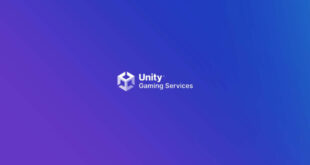The Korean game market is known for its downloadable PC games, but Korean game developers are increasingly adopting Unity to take advantage of browser embedded gaming and streaming content.
The first well known example of this was when the developers of the Cartoon Network MMO Fusion Fall decided to change gears mid production and drop Gamebryo after user testing revealed that the large download was a major barrier for its target audience.
Nurien Software, creators of the stylish dance party and social networking online game MStar, also decided to make the switch — converting its Unreal 3 game to Unity for its upcoming launch in key international markets.
The most recent Korean dev team to finish converting its game was GPM Studio, who made the decision to adopt Unity studio wide for all current and upcoming projects. I recently met with its CEO to find out more.
Grové: What made you decide to start GPM Studio?
Luke Park, Ceo, GPM Studio: I’ve always wanted to develop my own games with new content and concepts, so after I had been in the game industry for a few years I decided to open GPM.
Can you tell me about the history of Gga Ggung’s development?
We started to develop GG in 2007 with the open source Ogre engine. The biggest disadvantage of using Ogre was that it is not established and hard to find developers who can develop with it. In 2008 we changed to the Gamebryo engine, which is the most popular engine in Korea, so it was easy to find developers who have a lot of experience with it — but it has many disadvantages, too.
We used it for a year and a half before it became apparent that Gamebryo wasn’t going to work out. Luckily we found out about the Unity engine from the GPM Community Site; after a week of investigation I could tell that there was a new world of hope for GG.
How long did it take to convert Gga Ggung from Gamebryo to Unity?
It took us four months, and in that time we were able to add new features, too. In the end, I don’t think it really increased our production time at all.
What are some of the benefits of using Unity versus other engines?
The licensing costs, multi-platform deployment, it’s easy to learn, and you can create the same gameplay features as you can in other engines with ten-to-20 per cent of the code.
As for the game itself, our users benefit by not having to download graphics card drivers or Active X, and Unity’s web player penetration and streaming capabilities means there’s no need for a lengthy install process.
What was the hardest part about converting your project to Unity?
When we started, the manual wasn’t in Korean, and we couldn’t find much information about developing with Unity on Korean forums either. So, using Unity’s English website was the most difficult part. Because of this, we started to translate the documentation into Korean and also used our know-how to open www.unity3dkorea.com for developers in Korea.
What‘s your favourite part about using Unity?
From a management perspective, my favourite part is that it makes the process of making games fun for our developers. Because of Unity’s ease of use, all of our developers are able to participate in discussing the engine and making the game, not just the programmers, which is normally the case in South Korea.
What’s unique about Gga Ggung? Why do you think it will be successful?
First of all, our theme of ‘hide and seek’ is easy to understand and appeals to a global audience. When you combine this with the fact that we’re able to put such a high quality multiplayer game on the web, it really opens up our market potential.
GG’s website and in-game lobby system also allows GG to grow an organic game community; this is very powerful as it can help the popularity of the game for a long time.
Furthermore, because of GG’s family-friendly nature, it appeals to a lot more female users than the average game in Korea. Finally, our character customisation opens up the potential to do various marketing things like expose new fashion brands.
You have two other announced Unity games (TalkTing and Bible Online), is there anything you’d like to share about those projects?
TalkTing is in the visual novel genre which is very popular in the Asian market, especially in Japan. It’s a game where people create their own love-story and make a profit by sharing their user generated content with others.
Bible Online is the huge project. There are a lot of developers who have developed a game with a Bible concept but they didn’t really succeed because they just made a game with Bible content. Bible Online is not a game; it’s more of a visualised Bible made with game technology which we hope will appeal to both Christians and non-Christians. I totally think that people will be interacting with this visualised Bible on tablets, instead of reading a physical Bible, but it’s going to need a lot of people’s interest and investment to complete.
What regions are you targeting for your games? Are you considering any platforms other than Web?
All the games from GPM contain global contents, so the world is our target market. After the web, we’re planning on targeting mobile platforms like the iPad and then consoles like the Nintendo Wii.
Do you have any advice for smaller developers to get their games noticed?
The most difficult thing will be funding projects and finding experienced, skilled developers. Developers need to find new contents and share a vision with others. Creating new contents and opening new markets is the only way to become a global business. Just don’t give up; challenge.
Do you see any changes happening in development trends in Korea?
Most of the games have been downloadable and service based online games. We ignored web browser based games in the past, because they were simple, small and light games.
However, Unity’s impressive 3D Web capabilities are beginning to catch the attention of Korean developers. The interest in web-based games is growing and there is a range of support from the government to help Korean companies become global.
Do you think there are barriers between Asian and Western gaming?
I think that in the Asian market, developers think more about business and making a profit from games rather than giving fun and joy to people. This mindset is different between the two.
Anything else you’d like to say?
Korea is a small country, but the best country of IT and semi-conductor technologies in the world. GPM Studio is a game developer in Korea with young professionals who love challenges.
We know what it is to enjoy games. With the support of our users, and the developer community, we aspire to become a global company that can change the world.

 MCV/DEVELOP News, events, research and jobs from the games industry
MCV/DEVELOP News, events, research and jobs from the games industry



